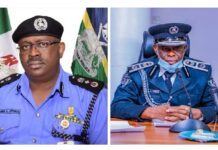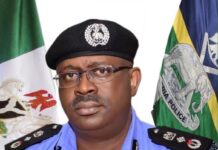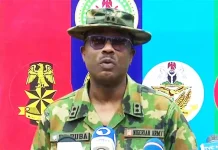Adamu Maina Waziri is one politician most people misunderstand. He is one man who does not suffer fools and, unlike the typical politician, he shoots from the hip, the reason some saw him as “crude”. His word is his bond; and if you asked him for a favour that he can grant, he would tell you, and if he promised, he would deliver. But if he wouldn’t, he would not bat an eyelid in telling you no.
This is not the kind of leader Nigerians want. Nigerians prefer the man who will tell them, “Ah, we did it for others, why not you? Come tomorrow” and they will make you waste a year on “come today, come tomorrow”. Opponents capitalised on Waziri’s perceived “naivety” to inject his fear into the hearts of their followers.
Nonetheless, I gave him (Bukar) what I believed was an honest answer. I said, “I believe anybody who comes out to aspire to be a governor has good intentions and therefore would be good.”
Though I still believe so for Yobe, I doubt if it applies to the national level, considering the catastrophe Nigeria saw between 2015 and 2023.
Meanwhile, I will leave Bukar’s response to my answer between the two of us with God as a witness – where it has been all this while.
Apart from the irony of Bukar having a son who used to be a Waziri die-hard, they cracked jokes and taunted each other whenever they met.
Waziri told me the hilarious story of how they on
ce met on a plane and Bukar pointed at his leg and said, “Adamu, if you want to be governor, come and hold on to this leg,” to which Adamu retorted, “That leg is like the leg of a grasshopper; the grasshopper flies off, leaving its leg with the person who holds it.”
And he could be practical. In 2007, knowing I laid my neck on the political guillotine having played an active role in the bid of Tumsah (who was his Commissioner for Agriculture when he first governed Yobe) to be governor on the platform of the Action Congress of Nigeria, Bukar, knowing the politics of Yobe, thought the new governor may not be friendly to me. So he called me to his home in Maitama and said something like: “Forget politics and think of survival; follow (your brother) Adamu Waziri.” Waziri was a minister as his party was in government at the centre.
Even though as a journalist covering the state I interacted with Bukar Abba, my first one-on-one encounter with him was during the campaigns for the 1993 presidential elections in which Chief MKO Abiola stood as a candidate in his party, the SDP.
The Nigeria Labour Congress (NLC), Yobe branch, had set up a political commission of five, with Comrade Bashir Abubakar Sadik (Barry White) as chairman and me from the Nigeria Union of Journalists (NUJ) as secretary. Our job was to go around the state and sensitise NLC-affiliate unions on the need for peaceful, free and fair elections, but most importantly on the need to mobilise for the SDP candidate because the party, being “a little to the left”, was more in tune with labour.
Comrade Baba Usman Sambo, then NLC state secretary, facilitated our meeting with Bukar. He easily welcomed us, told us a lot of political stories and then gave us an SUV from the Government House carpool and some other necessary logistics.
When General Abacha struck, he had a last encounter with us, the press. I recall telling him, “It is not the people of Yobe that rejected you. Whenever you come back, we will vote for you again.” And so it happened.
Never a man of vanity, the glitters of the world hardly take his attention. Baba Ba’aba, who was his long-running secretary to the state government and his permanent secretary when he was a commissioner, told me the story of how he went to Sherrifson, a trendy supermarket in Maiduguri, to buy modern furniture to replace those in Bukar’s sitting room while he was away on a trip.
He said the moment Bukar entered the sitting room and saw the change, he just smiled and said, “Baba kenan!”
He said, “Bukar dan kawye ne”, not derogatorily but in admiration and awe. Explaining further, he said Bukar would come and meet people sitting under a tree and he would just remove his gown and sit on the ground with them. He was indeed an embodiment of humility.
And he kept those he knew around him. When he was in the Senate and I was an editor with Leadership newspaper, he would call me to arrange the press for him if he had anything to say. Likewise, when his late daughter got married, he gave all the adverts to me.
Earlier when he was governor, I was given an appointment with the Yobe Broadcasting Corporation after coming first in a rigorous examination and interview conducted for 53 of us, but the appointment was rescinded, because of local politics, on the excuse that “it was given in error.”
When I told him about it after some months, Bukar told me he would instruct them to absorb me if I wanted. I thanked him but declined.
Even though he had never shed tears in his life, he was full of empathy and generosity. In one of the weekly briefings he held with the press every Wednesday before Executive Council meetings, he confessed to having never shed tears in his life, no matter what he did. He thought, or was told, that there was a problem with his tear glands!
He loved the press. His time was a golden age for the local press because he encouraged them to blossom. During his time, there were about five local newspapers – the highest number among the northeastern states. There was Yobe News, later changed to The Mark, published by Sanusi Oladipo, who came as a Youth Corps member but found a home in Yobe and went on to marry another ‘corper’, Imabong. Three children they gave birth to in Yobe are now university graduates.
We also had Newsray of the late Campbel Ori, who later started a Hausa version called Hakika; Pioneer Administrator, later became City News, and finally, Sky News, of Yusuf Mammai, Rural Front of December Gboru, The Nest of Martin, The Finder of late Akpan and I published The Informant, combined with its Hausa version, Mafadi.
Under my leadership, the Yobe State Newspaper Publishers’ Association from time to time interacted with him and he made sure all adverts we published were paid. We lapped on his benevolence and always did adverts for local governments and MDAs without even their asking, which were always paid from the SSG’s office.
The way we were treated made some local publishers from other Northeastern states join us and in 2006 we formed the North East Publishers Forum (NEPF) with me as pioneer chairman and Mr Freedom Haslon, publisher of News Now, from Adamawa State, as pioneer secretary.
In 2005, my late wife, Lami Fatima Babare, came home from work looking sad. She was an English language lecturer at the Federal College of Education (Technical), Potiskum. The reason for her mood was that her colleagues were going to Hajj that year and she was the odd one out. They were either married to big guns or had fewer demands on their salaries and so could afford to pay for the pilgrimage.
I had no one to go to, to make her dream come true except Bukar. And so I wrote a letter to him, requesting a Hajj slot and went to Damaturu on a Wednesday (it was much easier to see him as a journalist). I waited until he had finished discussing with the press in the chamber and then I went to him and dropped the letter in front of him and, without a word, turned and left.
Not quite five minutes later, his police orderly, ASP Kingimi, rushed out with the letter and handed it over to me with his signature of approval. And so my wife went to Makkah, I became a hero in her eyes, and our marriage hit a new purple patch. And all of that courtesy of Bukar Abba Ibrahim, the man who touched my life and those of many others in Yobe and across Nigeria.




